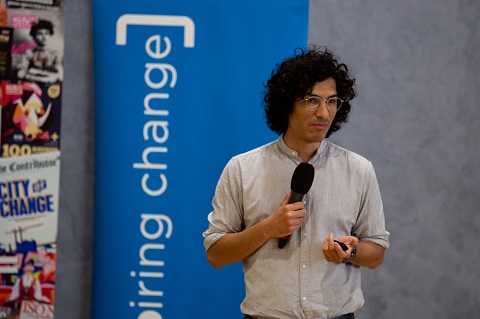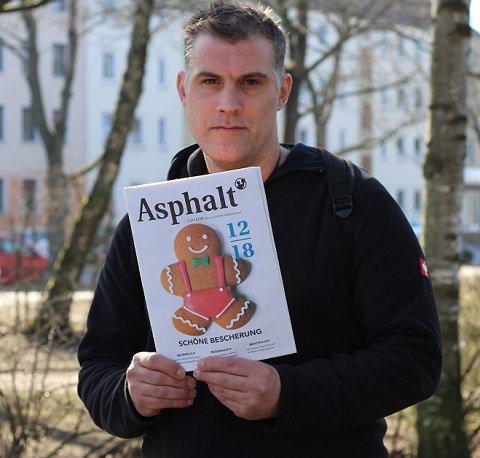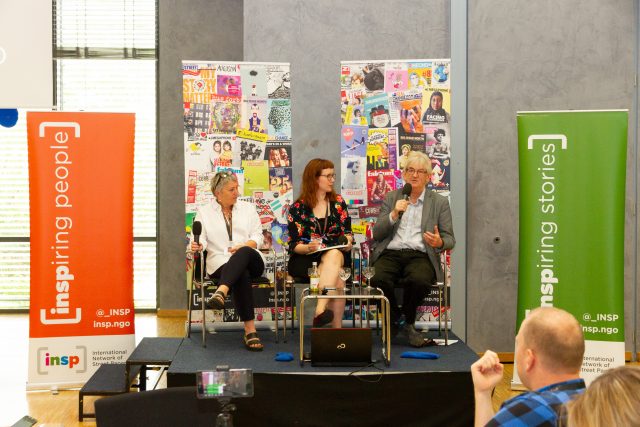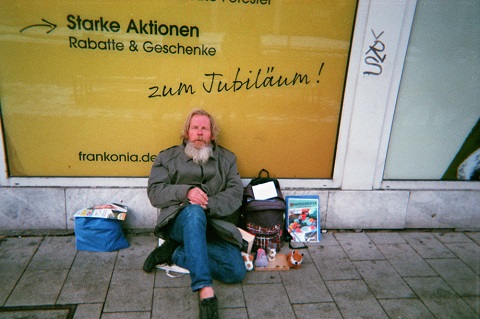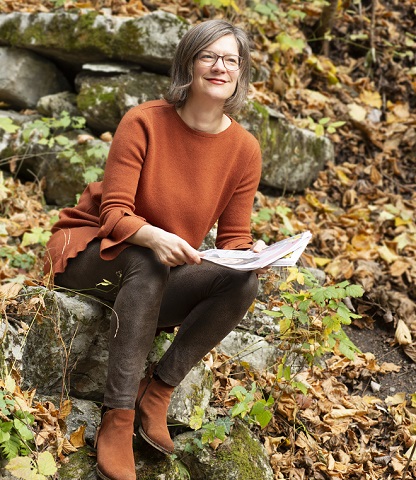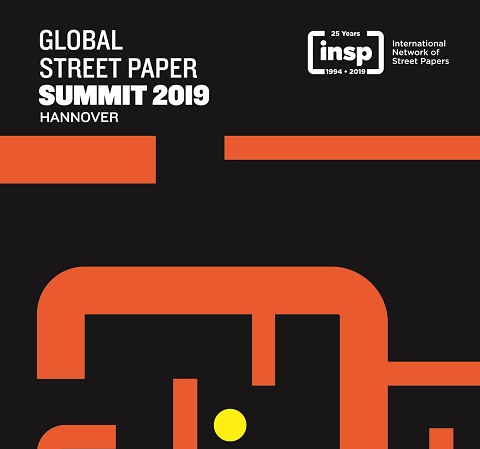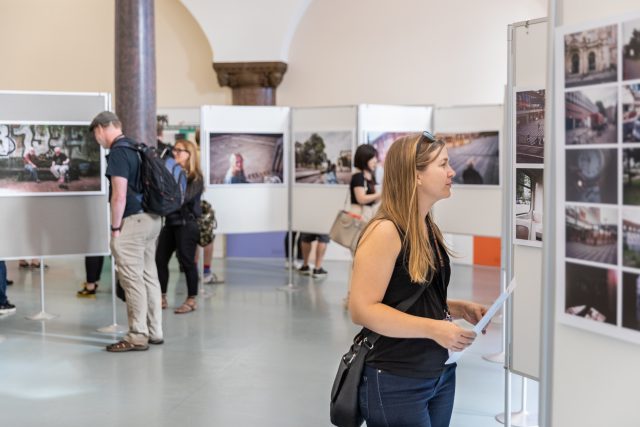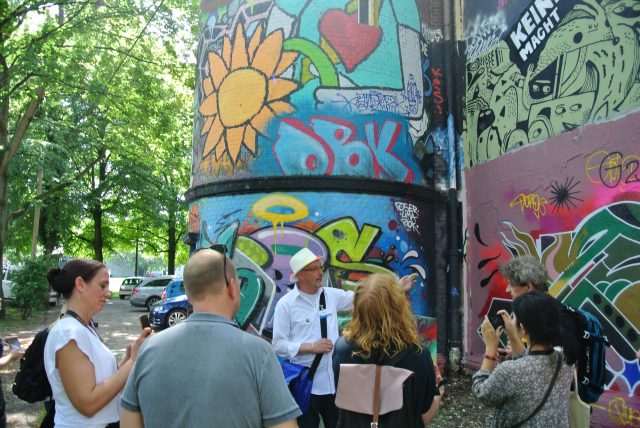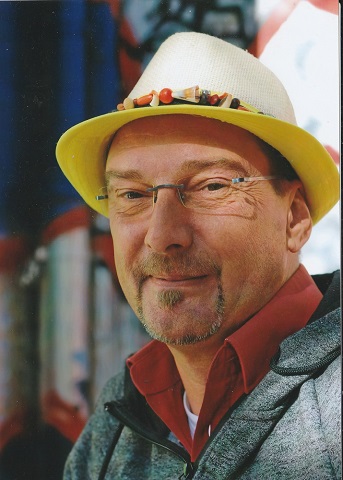“I find this to be quite a daunting audience. I normally speak to academics and people who are more detached from the real world. But I think many people here know the practicalities of what I’m talking about better than I do.”
This is the opening gambit of Richard Wilkinson – renowned social epidemiologist and author of the best-selling book ‘The Spirit Level: Why More Equal Societies Almost Always Do Better’ – as he addresses a room packed full of delegates from street papers across the world. In his book, which was an unlikely hit when it was released in 2009, Wilkinson, along with co-author Kate Pickett, presents cold, hard and unsettling data showing how income equality is deeply influenced by societal factors. In the intervening eight years, he has taken his findings to all manner of communities and audiences, giving TED talks and responding to detractors. The book’s influence – and popularity – does not seem to have waned, and the uncomfortable truths borne of his research remain startlingly prescient.
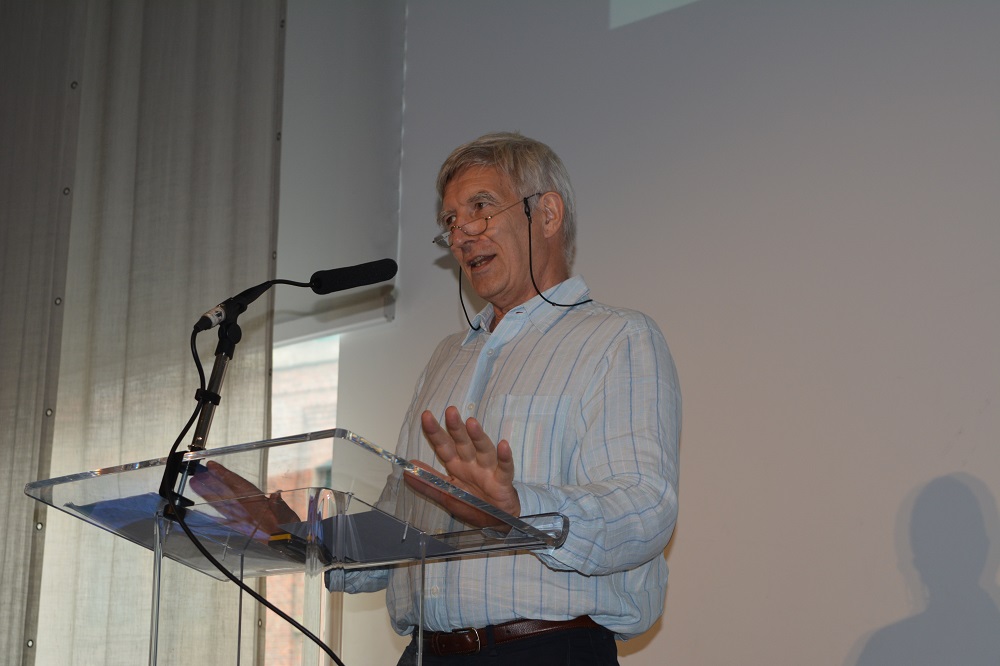
At the 2017 Global Street Paper Summit, appearing as the event’s first keynote speaker, that popularity is in full view amongst delegates, even if he admits to being taken down a peg or two by talking to people who deal with social inequality every single day. Before his presentation, there is an audible buzz around Manchester’s Bridgewater Hall. And following his speech, some delegates even ask for him to autograph their copies of ‘The Spirit Level’.
As Wilkinson and I chat over some lunch, he explains that the reasons the book, and his research, still linger in the public consciousness are not necessarily something to be celebrated. “Unfortunately, in the time since ‘The Spirit Level’ was published, the findings have been reinforced. While it’s good that there has been such an enormous growth in interest of the problem of inequality, the fact we are so sure we were right back then shows that the problem is not getting any better and is not being positively addressed.
“Almost everything we put in ‘The Spirit Level’ has now been confirmed by other researchers in different countries. And not only have the relationships we’ve shown – whether between violence and inequality or low social mobility and inequality, or many others – been confirmed, but we can now see clearly what we call the pathways, the social processes, that connect inequality to worse outcomes. I think we feel that the overall structure of what we were showing in ‘The Spirit Level’ is right. It fits together too coherently to be wrong.”
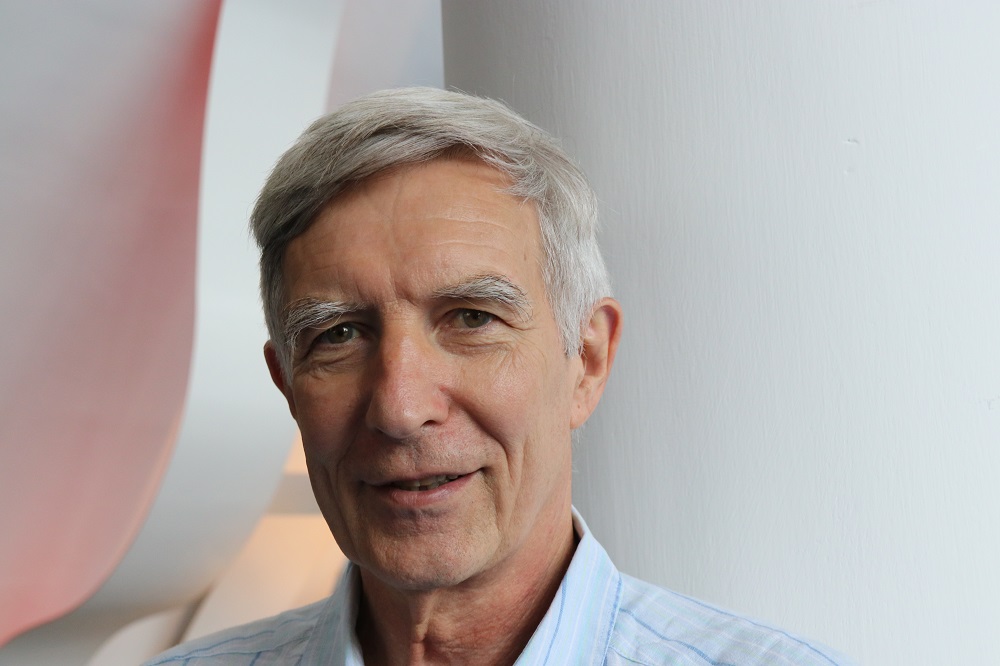
The reason ‘The Spirit Level’ seems such an unlikely populist hit amongst readers, especially now, is its reliance on showing data visually through graphs, tables and trends – something that would not necessarily be described as especially exciting or sexy. And if in 2009, prior to its release, the book seemed to have a narrow target audience, the period since has seen a backlash against experts and evidence, with Conservative MP Michael Gove infamously declaring during the UK’s lead up to the EU Referendum and the resulting Brexit: “I think people in this country have had enough of experts”.
Wilkinson says that, despite this, he still believes that apathy shown towards the academic community is a reflection of certain sections of the political establishment, rather than of the general public as a whole. “The right has always disliked the social sciences. They are much keener to dismiss evidence and experts because academic research is predominantly, if not always, progressive. It pushes against them.
“Despite all this stuff about fake news and the lies politicians tell us, people don’t actually just come to the idea that the truth is simply relativistic, believing whatever they want to believe. People still do have a very clear idea that there’s evidence for things and, actually, scientists are trusted better than politicians.”
During the course of his speech, Wilkinson communicates some of the more shocking elements of his research, showing in very stark terms how, in countries with deeply unequal societies, there are very obvious social problems from which that inequality is derived. He moves through large scale problems such as the homicide rate and mass incarceration, to more personal, individual factors such as status anxiety. He speaks with efficiency and clarity, moving through his findings in a very mannered and logical way, always coming to that same conclusion: the greater ranger of social and health problems within a nation, the more unequal that society is.
Any economic difficulty the rich can find their way out of it. A rich person losing a job doesn’t much matter because they’ll probably get another one, likely being paid more. It’s the people at the bottom who find it difficult.
He only really lets passion and anger take over from his very scientific method when he declares: “First, we need to stop the rich from being able to hide their money in tax havens!” This is met by a rapturous reception from his otherwise quietly observant crowd. He touches upon this again in our conversation, explaining that this is the most obvious problem that people take notice of and, as such, it is the problem being most urgently addressed. “People still don’t know the scale, they underestimate it; but 80% of the population realise there is too much inequality. And now that it is widely known that CEOs are getting millions and avoiding tax, there is considerable anger.
“Notable figures, like the Pope, Ban Ki Moon [former UN General Secretary] and Christine Lagarde [managing director of the IMF], have all made very strong statements against inequalities. The OECD (Organisation for Economic Co-operation and Development) has started to take action on tax havens by getting them to share data with tax authorities. I’m not sure if that will make a significant difference. But when we were writing ‘The Spirit Level’, there was no knowledge or interest or concern in inequality at all. And since, there has been a huge increase in media concern around inequality. I don’t think it’s going to go away until something’s done.”
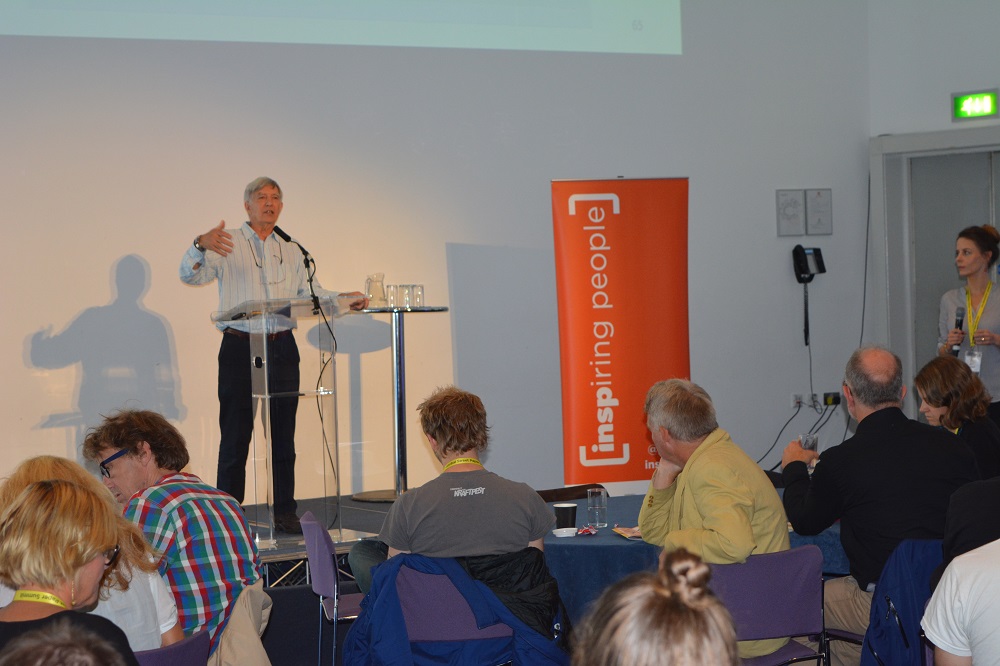
Wilkinson touched on myriad factors for the rise of societal inequality, but there was one noted omission, picked up on by many members of the watching audience of street paper delegates: what about homelessness?
Wilkinson explains that this was not an oversight. “The scale of homelessness is so difficult to measure. There aren’t many good comparisons. I remember people trying to measure homelessness by visiting all the places in one night where they thought they were likely to find people experiencing homelessness. But to do that well over a whole country, or to find some way of sampling that and get them for different countries – I haven’t seen good figures that would tell you that.”
There may be a lack of scientific research that would allow Wilkinson to present homelessness in the same way as he does the other factors explored in his research, but he is still acutely aware of how it fits in to his findings. “I’m pretty sure that housing problems are worse and, I expect, the problem of homelessness is just the bottom end of the housing problem. And, you know, it’s always people at the bottom who are affected most drastically. Any economic difficulty the rich can find their way out of it. A rich person losing a job doesn’t much matter because they’ll probably get another one, likely being paid more. It’s the people at the bottom who find it difficult.”
You’ve got to deal with the structural determinants of these problems. It’s not enough to simply make people feel better about their circumstances while those circumstances remain appalling.
He is also adamant in his admiration for the work that street papers do in contributing to righting the wrongs of inequality. “I think street papers do two things. They increase society’s awareness of problems of homelessness and they must do something for the people who sell it. It certainly gives people increased confidence.
“However, you’ve got to deal with the structural determinants of these problems, whether it’s health inequalities or homelessness or whatever, and that’s up to the government. It’s not enough to simply make people feel better about their circumstances while those circumstances remain appalling.”
Wilkinson’s work, and the way it has calcified over time, has left him with an overwhelming feeling of a worsening problem. However, it has not left him feeling helpless, and he leaves me with a glimmer of hope. “You usually try not to be too pessimistic in public and I think the problem is still very worrying. But, there has been a growth of opposition to those who seem happy to allow inequality to continue. We have to be very vigilant against all the ways that hate is built up. There are grounds to be optimistic.”






